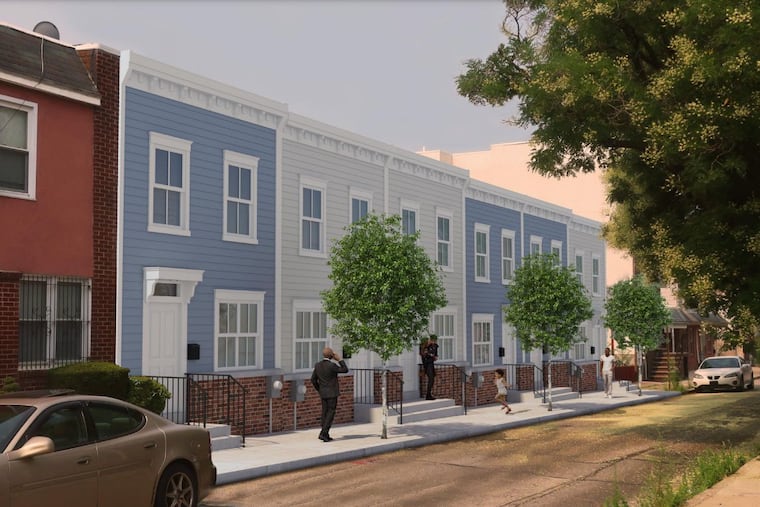Low-income housing vs. parking: Habitat for Humanity wins the latest round in North Philly
City Council approved Habitat's plan to build six rowhouses. The vote was delayed seven months because of neighbors' opposition.

Since last year, a parking lot in North Philadelphia has been at the center of a dispute between longtime residents who rely on it and Habitat for Humanity Philadelphia, which wants to build homes for waiting families with low to moderate incomes.
City Council on Thursday approved the transfer of land to Habitat, which had planned to break ground last fall. Council’s unanimous approval of a redevelopment contract between Habitat and the Philadelphia Redevelopment Authority followed negotiations among Habitat, neighbors, city housing officials, and the office of Council President Darrell L. Clarke, whose district includes the property.
The dispute demonstrates some of the challenges to addressing the lack of quality affordable housing in the city. For Habitat, Council approval was a big hurdle the nonprofit had been awaiting for seven months.
» READ MORE: MacKenzie Scott gave $5M to Habitat for Humanity Philadelphia as part of a $436M gift for affordable housing
Habitat agreed to put up six rowhouses instead of seven on the 1600 block of Page Street, but the fate of the parking lot, built in the mid-1960s, remained an issue for residents. In January, a neighbor nominated the lot for historic designation in an attempt to prevent development, calling it a “hidden treasure” and saying its loss would worsen quality of life for residents. The nomination delayed a Council vote.
A couple of weeks ago, staff at the Philadelphia Historical Commission said the nomination doesn’t give specific arguments as to why the parking lot is historically significant and the property should not be designated as historic.
“While parking may be at a premium in this neighborhood,” the staff recommendation said, “the Historical Commission must limit the use of its regulatory authority to preserving truly historic resources.”
Council’s approval of Habitat’s development on property owned by the Philadelphia Land Bank relies on a final decision by the Historical Commission, likely to come at its May 13 meeting. The commission typically follows its staff recommendations.
After that decision, Habitat will schedule a settlement date with the Philadelphia Redevelopment Authority and get the land transferred into its name, said Corinne O’Connell, chief executive officer of Habitat for Humanity Philadelphia.
“The six families are ready. The project is funded. We’re ready,” she said. “Let’s roll.”
In a statement, Clarke spokesperson Joe Grace called the Council president “a strong, consistent, longtime champion of the need for more affordable housing in Philadelphia.” He noted that Clarke’s Neighborhood Preservation Initiative stands to fund the production of affordable homes throughout the city over the next several years.
Tyreeka Richards, who works in social services, is one of the future homeowners who will move into a Habitat property on Page Street. She said she can’t wait for Habitat to finally break ground. Her home, she said, “is a stepping-stone to the legacy I would like to leave behind for my children and grandchildren.”
“We’ve just been kind of sitting on edge waiting to know what our future holds,” she said. “It’s a headache. I’m looking to provide my children with a safe and warm place to call home that is our home.”
Her 14-year-old and 8-year-old daughters share a room, she said, and they’re excited to get their own spaces when their three-bedroom house is ready. Richards wants to operate a business that provides work for people who were incarcerated, but she can’t move forward until she’s in her house.
“All you can do is have patience and remain positive throughout it all,” she said.
The Philadelphia Inquirer is one of more than 20 news organizations producing Broke in Philly, a collaborative reporting project on solutions to poverty and the city’s push toward economic justice. See all of our reporting at brokeinphilly.org.